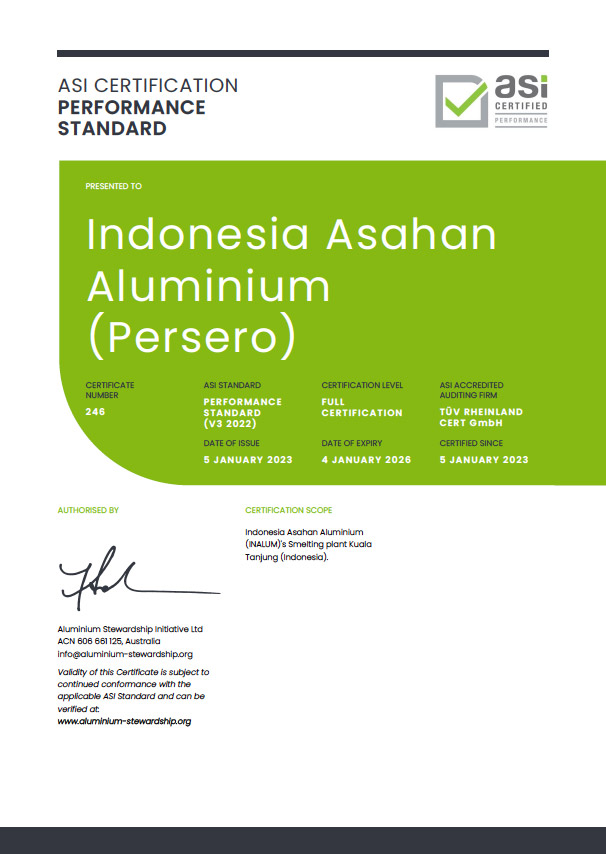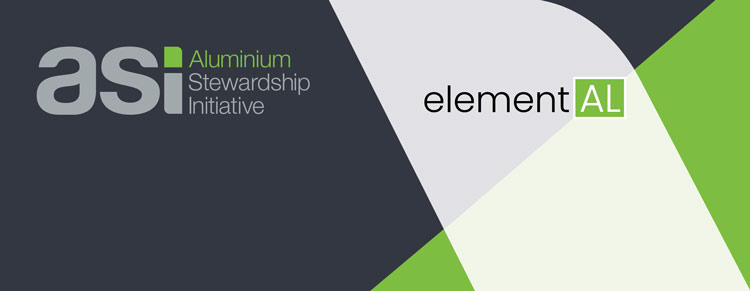ASI updates its Standards Guidance and clarifies Standards language in latest release
At its 5 April 2023 meeting the ASI Board adopted as ASI By-Laws the updated ASI Performance Standard Guidance V3.1, ASI Chain of Custody Standard Guidance V2.1, ASI Claims Guide V3, and ASI Glossary V1.1 documents. The updated documents will be available on the ASI website on 12 April 2023.
17 April 2023
The 2023 ASI Strategy articulates a commitment to carry out regular updates of ASI Guidance, within the overall five-year Standards Revision frequency described by the ISEAL Code of Good Practice for Setting Social and Environmental Standards (at least every five years). This iterative development approach allows ASI to:
- Reflect quickly fast paced changes in the sustainability space in ASI Guidance, in particular related to ASI long term climate (e.g. 1.5 degree sectoral methods), nature (e.g. incorporation of developing frameworks such as TNFD), circularity (e.g. recycled content methods) and social (e.g. IPAF developed guidance) goals;
- Embed lessons learned from ongoing certifications, Entity and Auditor experiences, including timely case studies, while maintaining the stability of normative documents (ASI Standards), which continue to follow a slower revision frequency;
- “Crowd-source” error identification, conflicting Guidance and sense checking and act to correct issues identified by users quickly;
- Take time to systematise, re-structure and streamline Guidance, tasks which were identified in the revision process but which were de-prioritised in lieu of substance/text changes;
- Socialise issues that one might expect to see incorporated in future normative documents, allowing an evolution towards Standards revision, rather than sudden introduction and accelerated discussion. The latter can be challenging to manage and, during formal revision periods, public consultation processes cover a wide range of topics;
- Address issues in planned waves of priority, rather than load all work into compressed cycles at the back-end of revision periods. This can spread the workload for the team, successive Standards Committee representatives, and Working Group participants (as applicable).
The ASI Standards Committee has undertaken to update ASI Guidance documents, in alignment with the procedure, at the following frequency, reflecting the rate of change of information therein:
- ASI Performance Standard Guidance 6 months (Q2 and Q4)
- ASI Chain of Custody Standard Guidance Annually (Q2)
- ASI Assurance Manual Annually (Q4)
- ASI Claims Guide Annually (Q2)
- ASI Glossary 6 months (Q2 and Q4)
ASI Standards Updates
In addition to revisions to the ASI Guidance detailed below, the ASI Standards Setting and Revision Procedure V4 (2022) also has a provision for Non-Substantive Changes to normative documents, which do not require public consultation. This provision is to allow for efficient editorial changes, correction of minor errors and for clarification, where intent is not changed.
The Standards Committee has therefore also taken the opportunity afforded by the ASI Guidance revision to make some editorial changes (erroneous capitalisation) to the Chain of Custody Standard and the following amendments to the Performance Standard, both of which have been adopted as ASI By-Laws by the Board:
- Improved clarity on applicability of a number of criteria to specific Supply Chain Activities and Entity types.
- Correction of erroneous capitalisation (undefined terms).
- CoC Principle 8 title change from “Mass Balance Accounting System: CoC Material and ASI Aluminium” to “Material Accounting System: CoC Material and ASI Aluminium”.
- Criterion 2.6(b) specification of Impact Assessment as a Human Rights Impact Assessment, aligning with the rest of the criterion language.
- Criterion 10.8(c) clarifying text to align with the intent of the criterion, where this is not well expressed, as follows: “The Entity shall…ensure the workday does not exceed 8 hours on average over a six-month period.”
- This issue was raised by an Entity, in discussion with an Auditor, asking “does this mean that I must make my part time workers work an average of 8 hours a day?”; of course this is not the intent of the criterion (which is to limit average working hours for the wellbeing and fair treatment of Workers). The fact that the question was asked, however, indicates that improved language is valuable.
These minor updates to the 2022 Standards will be updated and rolled out in elementAL over the coming weeks.
ASI Standards Guidance documents Updates
Beyond restructuring, rationalising and refining ASI Guidance texts, correcting editorial errors and improving linkage between the documents, content updates have also been undertaken.
ASI Performance Standard Guidance V3.1
Principle 9 Human Rights: Added the resource of the Business & Human Rights Navigator by the UN Global Compact, in the introduction.
ASI Chain of Custody Standard Guidance V2.1
ASI Glossary V1.1
- Glossary updated to incorporate new Claims Guide defined terms (Transformation of a Product).
- Specify that a Watershed is an area of land that consists ‘of both its surface and subterranean features such as groundwater’.
ASI Claims Guide V3
- Claims Guide expanded and with greater detail on claims types and ability of non-Members to leverage Entity on-product claims.
 A 45 Minutes On… webinar with Assurance and Accreditation Manager Vicky Tran, outlining the changes to the ASI Claims Guide will be held on 9 May.
A 45 Minutes On… webinar with Assurance and Accreditation Manager Vicky Tran, outlining the changes to the ASI Claims Guide will be held on 9 May.
Previous news on the 2022 Standards
 26 JANUARY 2023
26 JANUARY 2023
First ASI Performance Standard V3 (2022) Certification issued
ASI announced today that Indonesia Asahan Aluminium (INALUM) Persero has achieved ASI Performance Standard V3 (2022) Certification for its INALUM Smelting Plant at Kuala Tanjung in Indonesia. This is the first certification issued against the updated Performance Standard V3, which was launched in May 2022 following a multi-year revision process.
The ASI Certification program was developed through an extensive multi-stakeholder consultation process and is the only comprehensive voluntary sustainability standard initiative for the aluminium value chain. The ASI Performance Standard V3 (2022) was launched in May 2022 following a multi-year revision process. It defines 11 principles and 62 criteria under three sustainability pillars – Environment, Social, and Governance – with the aim to address pressing sustainability issues in the aluminium value chain, such as biodiversity, Indigenous Peoples rights, circularity, and greenhouse gas emissions.
“We sincerely congratulate Indonesia Asahan Aluminium (INALUM) Persero on achieving the milestone of the first ASI Performance Standard V3 (2022) certification. The three-year revision process was undertaken to update and extend the Standard’s criteria to meet the growing urgency of global environmental challenges, as well as aluminium sector stakeholders’ increasing expectations around key sustainability issues. We’re pleased to see INALUM (Persero) forging the way ahead with the uptake of the new Performance Standard, and demonstrating its strong commitment to responsible aluminium production and stewardship.”
Fiona Solomon, Chief Executive Officer at ASI
Read the INALUM ASI Performance Standard V3 (2022) Certification media release
25 MAY 2022
About the ASI Standards (2022) versions
The 2022 versions are the outcome of ASI’s first major revision since the launch of its Standards and Certification program in 2017.
Multiple rounds of review and public consultation, overseen by ASI’s multi-stakeholder Standards Committee, resulted in more than 1000 improvement items being actioned, building on implementation experience, stakeholder feedback and evolving expectations. Initial work for the revision process kicked off in mid-2019, and has received valuable input along the way from the Indigenous Peoples Advisory Forum (IPAF), and Working Groups on Biodiversity and Ecosystem Services, Chain of Custody, GHG, Human Rights, Recycling and Material Stewardship, and Standards Benchmarking and Harmonisation.
On the occasion of the launch on 19 May 2022, Dr Fiona Solomon, ASI Chief Executive Officer said, “Today is an exciting milestone for ASI. Revision processes are intensive, but enable us to evolve alongside changes in knowledge, stakeholder expectations and priority issues. We extend our sincere thanks to all who have contributed to this critical effort, and for the hard work and diligence from across the ASI team. Today’s launch is just the start, and we anticipate positive engagement with the rollout of the updated ASI Certification program over the next 12 months.”
The Revised versions published are:
- ASI Performance Standard V3 (2022)
- ASI Performance Standard Guidance V2 (2022)
- ASI Chain of Custody Standard V2 (2022)
- ASI Chain of Custody Standard Guidance V2 (2022)
- ASI Assurance Manual V2 (2022)
- ASI Claims Guide V2 (2022)
- ASI Glossary V1 (2022)
English, Chinese, French, German, Japanese, Portuguese, Spanish versions are available.
Watch: ‘Introducing the 2022 ASI Standards’ video series
Find out about the key changes that have been adopted in the new Standards and their supporting documents in this series of short videos.
Overview and applicability of the new Standards
What’s New? Principle 5: Greenhouse Gas Emissions
Do you have a question about the 2022 Standards?
Our 2022 Standards FAQ page might have the answer!
Transition process
More than 230 ASI Certifications have been issued so far against the 2017 Standards. This existing portfolio will steadily transition to the new versions in accordance with re-certification cycles. ASI also anticipates expansion in uptake of the new Standards as membership continues to grow.
During a 12-month transition period, Entities can choose to audit against the 2017 Standards or 2022 Standards. After 12 months (i.e., starting from 1 June 2023), only the 2022 Standards will be eligible to be used for ASI Certifications and re-certifications, and the 2017 versions will be retired. Existing certifications against the 2017 Standards can continue for their full certification cycle. Members can also choose to have an early re-certification audit conducted against the 2022 standards if they wish.

In the 12-month period following the launch, there will be a transition period for the two ASI Standards. However, the new Assurance Manual and Claims Guide are effective from today.
Unlike the Standards, there will be no transition period for the Assurance Manual. However, any audit planning and preparation activities undertaken before the launch of the 2022 Standards (i.e., before 19 May 2022) in accordance with the 2017 Assurance Manual will be acceptable.
CONSULT THE 2022 STANDARDS FAQ
educationAL learning platform updated for 2022 Standards

In conjunction with the launch of the revised ASI Standards, our learning platform -- educationAL -- has undergone significant updates and upgrades.
In the updated platform, you’ll find:
- Free and self-paced navigation through 21 online courses and 16 recorded webinars
- A tailor-made learning dashboard to easily see which course(s) are recommended and/or assigned to specific stakeholders
- New and updated versions of training modules to align with the revised Standards and to improve engagement with content (e.g. Introduction to the ASI Performance Standard, Introduction to the Chain of Custody (CoC) Standard, CoC Deep Dive, Human Rights Due Diligence, Human Rights Impact Assessment, Path to ASI Certification, more…)
- New modules, such as on Greenhouse Gas emissions in the aluminium value chain
- Access to courses and materials developed by partners and similar initiatives
START YOUR LEARNING JOURNEY TODAY
elementAL assurance platform updates

The ASI team have implemented updates to elementAL, our online assurance platform, to support the rollout of the revised ASI Standards and Assurance Manual by members and auditors.
Key elements in the elementAL transition include:
- incorporating the updated Standards and Guidance into elementAL, including applicability by supply chain activity
- incorporating new aspects from the updated assurance manual, including a general description of the Entity to be included in the Public Summary Report. This will provide stakeholders with a better understanding of the nature of the operations and activities.
- embedding updated Certificate designs in elementAL and the Public Dashboard, with a view to supporting direct data access over stand-alone PDF exports
- enabling and explaining the one year transition period between the current and revised versions of the Standards
- updating the FAQ section to align with the revisions.
Additional announcements and information will continue to be posted in the elementAL platform and the FAQ section. Users should share all questions through the elementAL Help Desk.
SHARE THIS ARTICLE


